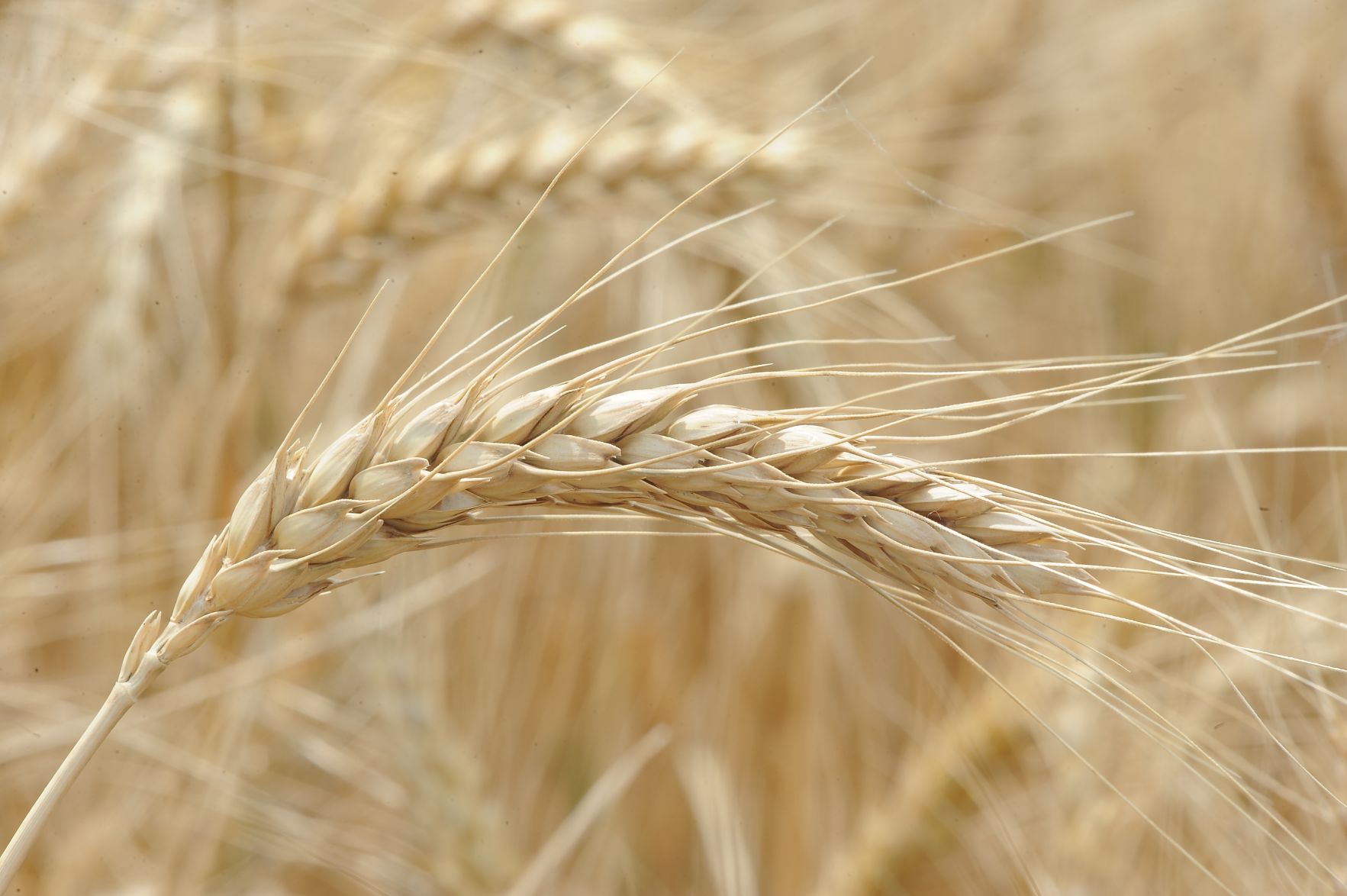Officially, the Kansas wheat harvest is now 5% complete, ahead of 1% complete last year and on average, according to the U.S. Department of Agriculture’s National Agricultural Statistics Service crop progress report for the week ending June 9. Winter wheat conditions were rated at 33% very poor to poor, 35% fair and 32% good to excellent.
Growers on the Kansas and Oklahoma border started cutting in earnest around June 3, according to Chris Fryer, grain merchandiser with CoMark Equity Alliance, LLC. The southern tier of counties in his coverage area—Barber, Harper, Sumner and Cowley—are now about 20 to 30% complete with harvest.
Proteins are variable from field-to-field, ranging anywhere from 9.5% up to 14.5%. Moisture is dry and test weights are well above 60 pounds per bushel with several loads above 62 pounds per bushel. Overall, Fryer estimates the harvest will come in a tick higher than the five-year average.
“Yields are better than expected, so everyone is in a pretty good mood,” Fryer said.
Rains delay harvest
Elsewhere in the coverage area, harvest in Sedgwick and Harvey counties is about 15% complete, with combines shut down by rains over the weekend. Harvest in Marion County in central Kansas is just getting started at about 5% complete and soft red winter wheat harvest is just beginning in Crawford County near McCune.
Overall, acres were stable this year and prices and yields are higher. Fryer noted most of the early wheat is going straight into the elevator bin to fill up space left empty from previous disappointing harvests. He also reported wheat is being sold to fill inelastic mill demand and they’re seeing some exports start to pick back up after last year’s dramatic drop-off related to the strong U.S. dollar and short supplies.
Harvest is now 20 to 25% complete near Clearwater, according to farmer Scott Van Allen, who reported in from the parts store where he was picking up what he needed to fix a fan belt for the combine.
Other challenges
He started cutting on June 6, but in addition to the current equipment breakdown, he was delayed over the weekend by storms that brought straight-line winds and took him out of the field to clean up debris at his son’s place by Wellington Lake. Despite trees and irrigated corn blown down, the wheat was still standing nicely and they were back in the field on June 10.
Harvest has been a mix. Full-season wheat benefitted from nice filling weather and there is a lot of grain in the heads, resulting in heavy test weights of 63 to 65 pounds per bushel. Fields that were double-cropped behind soybeans were knocked back by dry weather and are more disappointing. Overall, the final yield for the farm should come in much better than last year.
Combines are also rolling again across Sumner County after a small rain delay, according to Chris Stevens, manager of Farmers Coop Grain Association, based in Conway Springs. Farmers in the area have been hopping and skipping around to catch ripe wheat fields and avoid green suckerheads since June 5. Most producers should have some good wheat, but there were fields that suffered from either a prolonged lack of moisture or drowned out in recent storms.
Quantity, quality up
Quantity and quality exceed that of the last several years and are maybe even better than anticipated, so Stevens said no one is complaining. Test weights are good and heavy, averaging 61 to 62 pounds per bushel, and moisture has stayed dry around 12%.
It’s too early for good yield information, but Stevens said to expect a wide range from 30 to 50 bushels per acre. That is still 15 to 18 bushels per acre higher than last year’s average of 22 bushels per acre, and this year’s crop should hit within the area’s five-year average.
“Everyone is in a lot better mood when they are seeing the bushels coming into the bin,” Stevens said.
The 2024 Harvest Reports are by the Kansas Wheat Commission, Kansas Association of Wheat Growers, Kansas Grain and Feed Association and the Kansas Cooperative Council. To follow along with harvest updates on Twitter, use #wheatharvest24 on social media. Tag us at @kansaswheat on Facebook, Instagram and Twitter to share your harvest story and photos.
Written by Julia Debes for Kansas Wheat.

